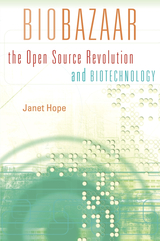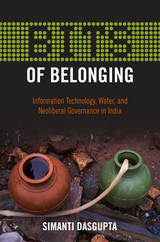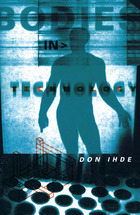5 start with B start with B

Fighting disease, combating hunger, preserving the balance of life on Earth: the future of biotechnological innovation may well be the future of our planet itself. And yet the vexed state of intellectual property law—a proliferation of ever more complex rights governing research and development—is complicating this future. At a similar point in the development of information technology, “open source” software revolutionized the field, simultaneously encouraging innovation and transforming markets. The question that Janet Hope explores in Biobazaar is: can the open source approach do for biotechnology what it has done for information technology? Her book is the first sustained and systematic inquiry into the application of open source principles to the life sciences.
The appeal of the open source approach—famously likened to a “bazaar,” in contrast to the more traditional “cathedral” style of technology development—lies in its safeguarding of community access to proprietary tools without discouraging valuable commercial participation. Traversing disciplinary boundaries, Hope presents a careful analysis of intellectual property-related challenges confronting the biotechnology industry and then paints a detailed picture of “open source biotechnology” as a possible solution. With insights drawn from interviews with Nobel Prize–winning scientists and leaders of the free and open source software movement—as well as company executives, international policymakers, licensing experts, and industry analysts—her book suggests that open source biotechnology is both desirable and broadly feasible—and, in many ways, merely awaiting its moment.

India’s global success in the Information Technology industry has also prompted the growth of neoliberalism and the re-emergence of the middle class in contemporary urban areas, such as Bangalore. In her significant study, BITS of Belonging, Simanti Dasgupta shows that this economic shift produces new forms of social inequality while reinforcing older ones. She investigates this economic disparity by looking at IT and water privatization to explain how these otherwise unrelated domains correspond to our thinking about citizenship, governance, and belonging.
Dasgupta’s ethnographic study shows how work and human processes in the IT industry intertwine to meet the market stipulations of the global economy. Meanwhile, in the recasting of water from a public good to a commodity, the middle class insists on a governance and citizenship model based upon market participation. Dasgupta provides a critical analysis of the grassroots activism involved in a contested water project where different classes lay their divergent claims to the city.


An Entrepreneur Best Book of the Year
Facebook makes us lonely. Selfies breed narcissism. On Twitter, hostility reigns. Pundits and psychologists warn that digital technologies substantially alter our emotional states, but in this lively investigation of changing feelings about technology, we learn that the gadgets we use don’t just affect how we feel—they can profoundly change our sense of self. When we say we’re bored, we don’t mean the same thing as a Victorian dandy. Could it be that political punditry has helped shape a new kind of anger? Luke Fernandez and Susan Matt take us back in time to consider how our feelings of loneliness, boredom, vanity, and anger have evolved in tandem with new technologies.
“Technologies have been shaping [our] emotional culture for more than a century, argue computer scientist Luke Fernandez and historian Susan Matt in this original study. Marshalling archival sources and interviews, they trace how norms (say, around loneliness) have shifted with technological change.”
—Nature
“A powerful story of how new forms of technology are continually integrated into the human experience.”
—Publishers Weekly

READERS
Browse our collection.
PUBLISHERS
See BiblioVault's publisher services.
STUDENT SERVICES
Files for college accessibility offices.
UChicago Accessibility Resources
home | accessibility | search | about | contact us
BiblioVault ® 2001 - 2024
The University of Chicago Press









